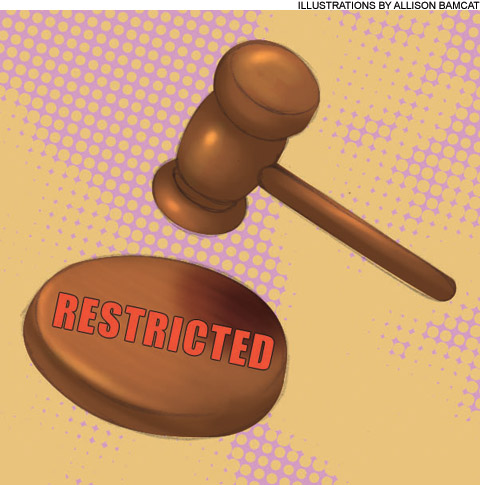
Bruce Selya
Federal Appeals-Court judge strikes blow against openness
The trial of Joel Tenenbaum was among the more widely publicized copyright-infringement cases of recent years. Sued in US District Court for illegally downloading music, the Boston University graduate student was hit with a stunning $675,000 judgment last August after he freely admitted on the witness stand that he had shared hundreds of songs. This past February, his lawyer, Harvard Law School professor Charles Nesson, tried to convince Judge Nancy Gertner that the judgment should be reduced to $21 — what Tenenbaum would have paid if he'd bought the 30 songs for which damages were awarded on iTunes. Good luck with that.
But there was another unusual aspect to the case, as well — a bid by Tenenbaum and Nesson to stream video from one of the pre-trial hearings over the Internet. Despite the objection of the Recording Industry Association of America, which had brought the suit, Judge Gertner granted the request. Unfortunately, a three-judge panel of the US First Circuit Court of Appeals, in an opinion written by JUDGE BRUCE SELYA, overturned Gertner and ordered that the hearing remain closed to the intertubes. (One of the other judges, Juan Torruella, was the winner of a 2009 Muzzle for writing an opinion that speech in Massachusetts need not be false to be considered libelous.) Thus did Selya and his fellow judges forfeit an opportunity to open the courts to greater public scrutiny.
Selya said that he had no choice. The rules, he wrote, simply did not give Gertner the discretion to order that the proceeding be Webcast. Writing that "this is not a case about a free speech writ large," Selya claimed that "if a controlling rule, properly interpreted, closes federal courtrooms in Massachusetts to Webcasting and other forms of broadcasting . . . , we are bound to enforce that rule."
Yet surely Selya and his brethren could have found legal justification to uphold Gertner, a longtime respected judge, who stood up for openness in her ruling: "The Defendants are primarily members of a generation that has grown up with the Internet, who get their news from it, rather than from the traditional forms of public communication, such as newspapers or television. Indeed, these cases have generated widespread public attention, much of it on the Internet. Under the circumstances, the particular relief requested — 'narrowcasting' this proceeding to a public Web site — is uniquely appropriate."
More than a dozen news organizations, including the Associated Press and the New York Times Company, which owns the Boston Globe, asked the appeals court to uphold Gertner. Sadly, Selya chose a narrow reading of the rules over a judge's discretion to open her courtroom to the light of day.
...